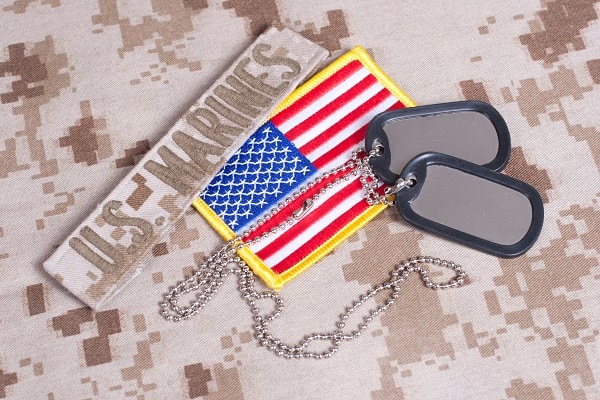How the Military Prepared these Veterans for the Business World

Militaries equip soldiers with the skills to fulfill their missions and be great leaders in the process. But what happens when the military service ends and its back to civilian life?
Business ownership is one avenue open to these veterans, and two OnDeck customers were kind enough to share their stories of how they came to own businesses and how the military positioned them to succeed.
Greg Conley
U.S. Navy 1990-1994
Medina, OH
Greg Conley served in the Navy from 1990-1994 and is a Navy legacy – Both of Greg’s grandfathers were in the US Navy during WWII. One of his grandfathers was an original WWII Naval Combat Demolition Units “Frogman”, the predecessor of the U.S. Navy SEALs, and each generation of his family has served in the Navy in some capacity through its many generations.
Greg credits his own service to the successes he’s had as a business owner.
“The Navy taught me how to get things done and done right,” Greg said. “It’s the mindset of ‘get organized and stay organized,’ to follow things through and don’t waver. This is what the military engrains in people and makes them outstanding business owners and employees.”
Greg started his business in 2009 when the vapor industry was still new, but Greg saw its potential, and coupled with his skillset, it put him on the path to success.
“After serving in the Navy, I focused on what I learned and studied: computer science and electrical engineering. I assisted with the manufacturing of products including oil, food, and chemicals. That translated well to the vapor industry, and my experience and exposure equipped me with the knowledge to publish our own patent for my business, FUMA.”
Greg’s business manufactures e-liquids, sub-ohm vapor systems and e-cigarettes for the vapor industry, and with the increased popularity of vaping, the Food and Drug Administration (FDA) took notice.
“I’m reading a 500-page FDA document on regulation in the vapor industry, to some, that would be overwhelming and defeating, but to me, I thrive with structure. I’m looking at this as an opportunity to grow and improve my business, and not as a roadblock,” Greg said.
The regulations are what brought Greg to OnDeck. The FDA required Greg to expand the clean room in his 10,000 sq ft facility, and Greg was reluctant to take the money from his cash flow to complete the project.
“The funding gave me the mechanism to grow,” Greg explained. “Not only did I need to expand my clean room, I needed to purchase label printers, fully automated equipment, and other support equipment. I didn’t want those needs to disrupt my cash flow, and OnDeck’s funds are helping to facilitate my business growth and get those tasks done in a timely matter. It’s about using money wisely.”
And while growth is the goal, Greg is fully committed to providing quality products to his customers on the journey, a value he attributes to his boot camp commander.
“I learned the greatest lessons in my life at boot camp,” Greg said. “My commander taught me to keep a calm head, think things through logically, to trust my gut and empower my people. I was taught to deliver the best product and not sacrifice quality. All these things are ultimately important to me as a business owner.”
Tim Curtis
U.S. Marines 1975-1995
Tampa, FL
Tim Curtis, Sr. wasn’t sure what he wanted to do in his professional life, so in 1975 he decided to join the Marine Corps and take advantage of the life skills it offered. After serving his country for 20 years, Tim retired from the Marines with a bachelor’s degree in Business Administration he earned and a load of life experience and discipline he received along the way.
Tim made the switch to civilian business owner after running for office Hillsborough County, FL shortly after retiring from the Marines in 1995. His political campaign was headquartered in a local UPS store, and when his bid for office came to an end, the UPS owner told Tim that he’d be great at running his own UPS Store franchise.
Fast-forward 17 years and Tim’s UPS store is thriving and adapting to new changes. The ability to adjust to changing markets and customer needs is a critical part of operating a successful business, says Tim.
“When you’re in the military, you always have a plan, just like in business. The plan doesn’t always go exactly how you think it will go, so you have to be able to make adjustments on the fly,” Tim explained.
“Maybe on patrol you encounter a river, or some obstacle that you did not foresee. It’s the same in business. For example, we had a client come in on Thursday who needed a newborn outfit shipped overnight. The package was misrouted and wasn’t going to get to its destination until Monday. We worked with the client had it rerouted “overnight” at our own expense to meet his needs because we wanted to do right by him.”
Tim admits that there’s a certain joy he feels when serving customers and making them happy.
“I’m a grandfather, and I know how important it would have been to me to have that newborn outfit arrive on the day my granddaughter was born,” he said. “It’s easy for to me to identify with my customers. I sympathize and empathize with them – we work in the same community, and it’s easy to align with their need and wants. Business is done on the basis of relationships, not at cost and price.”
Adaptation and growing client requests were important parts of why Tim sought out OnDeck when a funding need arose.
“One of the things that The UPS store franchises are moving into is printing at every level, from one-offs to large commercial orders,” Tim said. “We’ve been able to expand our product offering and grow our print business after purchasing a large format printer with our funds. We’ve gone from $0 to well over $500 per month just in print services based on that printer. And it continues to grow!”
Tim’s advice to future and current business owners – stick with your plan. He might not have made it this far without encouragement from his son, Tim, Jr. seven years ago.
“Like many business owners, you have peaks and valleys. Nearly a decade ago, I hit a valley and my eldest son changed careers to work with me and encouraged me to keep the business going along. It was the right move – our store has doubled revenue since then.”
“My advice to future and current business owners is don’t quit. There is a successful end to your efforts, so make sure to see it through.”






